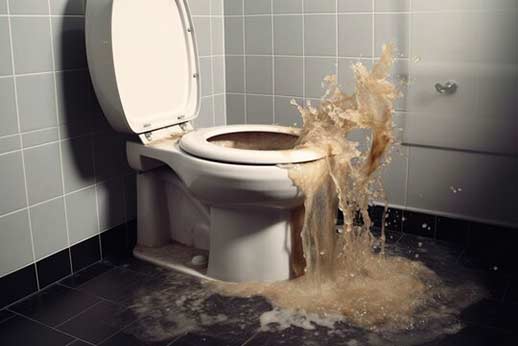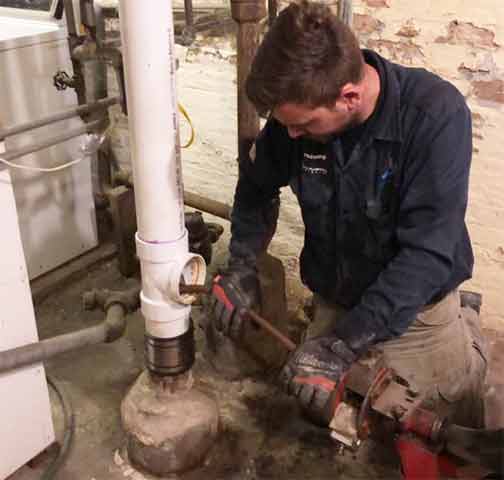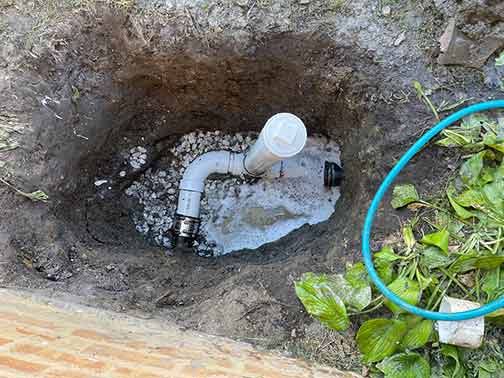When it comes to plumbing issues, sewer backup problems are among the most exasperating and unpleasant situations a homeowner can face. The foul odor, potential health hazards, and costly repairs make it a nightmare for anyone unfortunate enough to experience it. In this article, we will delve into the causes of sewer backup problems and explore effective solutions to mitigate these issues. Whether you are a homeowner looking to prevent future sewer backup problems or a concerned citizen wanting to understand the topic better, this article will provide you with insights and actionable steps to address this issue.
Understanding Sewer Backup Problems
Sewer backup occurs when wastewater, including human waste and other household effluents, flows backward into your home through drains, toilets, and other plumbing fixtures. This unwanted and unsanitary influx can cause severe damage to your property, pose health risks, and disrupt your daily activities.
Sewer backups can occur for a variety of reasons, but the primary causes are typically blockages or damage to the sewer line. Understanding these causes is crucial in comprehending how to prevent future problems and addressing any existing issues.
Causes of Sewer Backups
- Clogs and Blockages: One of the most common causes of sewer backups is the accumulation of debris and materials that clog the sewer pipes. These blockages can occur within your own plumbing system or in the public sewer lines. Common culprits include tree roots, grease buildup, foreign objects, flushed items like sanitary products or wipes, and even collapsed pipes.
- Heavy Rainfall and Flooding: During periods of heavy rainfall or flooding, the excess water can overload the sewer system. If the capacity of the sewer lines is exceeded, the wastewater may not be able to flow freely, causing backups. Additionally, if stormwater runoff infiltrates cracked or damaged sewer pipes, it can exacerbate the problem.
- Aging Infrastructure: In older neighborhoods, the sewer systems may be outdated and deteriorating. Over time, pipes can become corroded, collapse, or develop cracks and leaks, leading to sewer backups. The gradual deterioration of infrastructure is a silent problem that can catch homeowners off guard.
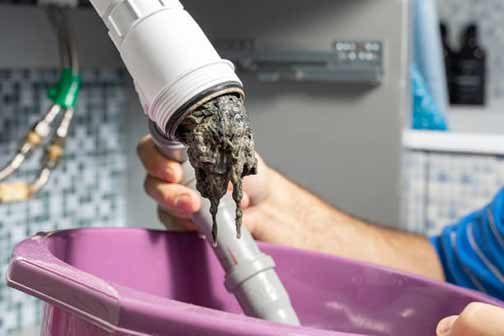
If several drains in your home are blocked simultaneously or drain slower than usual, it may indicate a sewer backup.
Recognizing the Signs of a Sewer Backup
It is essential to be able to recognize the early signs of a sewer backup to prevent extensive damage and minimize health risks. Here are some common indicators:
- Multiple Drain Clogs: If several drains in your home are blocked simultaneously or drain slower than usual, it may indicate a sewer backup. This is especially true if the affected drains are located on different floors or are not adjacent to each other.
- Foul Odors: An unexplained foul odor, reminiscent of rotting eggs, may permeate your home when there is a sewer backup. This stench is caused by the gases released from the decomposing waste in the sewer line.
- Gurgling Noises: If you hear gurgling sounds coming from your drains or toilets when they are not in use, it could indicate a blockage in the sewer line. The trapped air caused by the backup can create these unusual noises.
- Backflow in Plumbing Fixtures: An obvious sign of a sewer backup is when wastewater starts coming out of your drains, toilets, or other plumbing fixtures instead of going down. This should be taken seriously and requires immediate attention.
Preventive Measures to Avoid Sewer Backups
While sewer backups can be daunting, there are several preventive measures you can take to safeguard your home and minimize the risk of encountering this issue:
- Regular Plumbing Maintenance: Having your plumbing system inspected and maintained periodically by a professional plumber can help identify and address potential issues before they escalate. This includes checking for blockages, ensuring proper pipe connections, and assessing the overall condition of your sewer lines.
- Proper Disposal of Waste: It is crucial to dispose of waste materials properly, avoiding flushing items that can clog your sewer lines. Remember that toilets are designed only for human waste and toilet paper. Dispose of items such as wipes, feminine hygiene products, and paper towels in the trash.
- Tree Root Management: If you have trees or shrubs near your sewer lines, their roots can infiltrate the pipes and cause blockages. Regularly trim and monitor the growth of roots to prevent them from damaging your plumbing system and causing sewer backups.
- Install a Backwater Valve: A backwater valve is a device that prevents sewage from flowing back into your home. It automatically closes when it detects reverse flow and helps to safeguard your property from sewer backups. Speak with a professional plumber to determine if a backwater valve is suitable for your home.
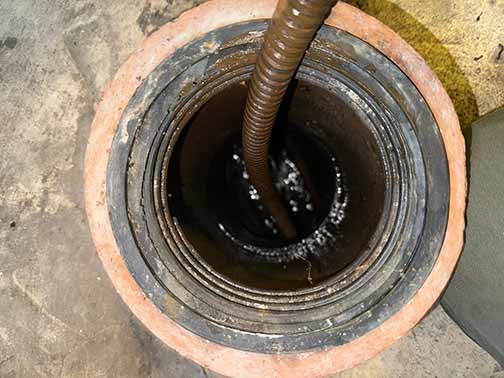
It is advisable to contact a licensed plumber or a sewer line cleaning service to handle the cleanup and repairs.
Steps to Take When Experiencing a Sewer Backup
Despite our best efforts, sewer backups can still occur. If you find yourself facing a sewer backup problem, here are the steps to follow:
- Ensure Personal Safety: Before attempting any cleanup or inspection, prioritize your safety. Keep in mind that sewer backups can expose you to harmful bacteria and other contaminants. Wear protective gear such as gloves, goggles, and boots to reduce the risk of exposure.
- Contact a Professional Plumber: It is advisable to contact a licensed plumber or a sewer line cleaning service to handle the cleanup and repairs. They have the expertise, tools, and experience to assess the situation accurately and address the issue efficiently.
- Document the Damage: Document the extent of the damage caused by the sewer backup. Take photos and make a detailed list of the affected areas and items. This documentation will be valuable when filing an insurance claim or seeking assistance.
- Notify Your Insurance Provider: If you have homeowners’ insurance, contact your insurance provider to understand your coverage and file a claim if necessary. Keep all relevant documentation and receipts to support your claim.
Sewer backup problems are complex and unpleasant, but with the right knowledge and preventive measures, you can minimize the risk of encountering such issues. By understanding the causes of sewer backups and recognizing early warning signs, you can take prompt action and mitigate the potential damage to your property.
Remember, prevention is key. Regular maintenance, proper waste disposal, and installing protective devices like backwater valves can significantly reduce the likelihood of sewer backups. If you do experience a sewer backup, prioritize your safety, seek professional assistance, and document the damage for insurance purposes.
By taking a proactive approach, you can protect your home, your family, and ensure a clean and healthy living environment for years to come.

